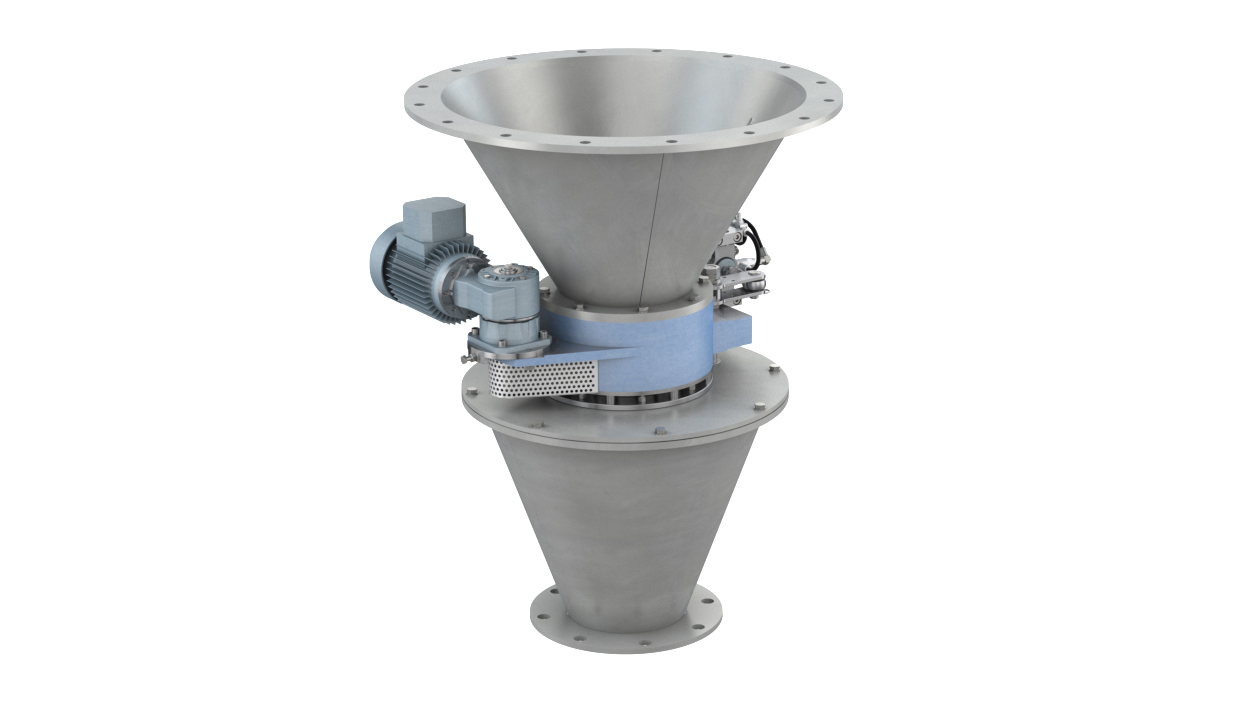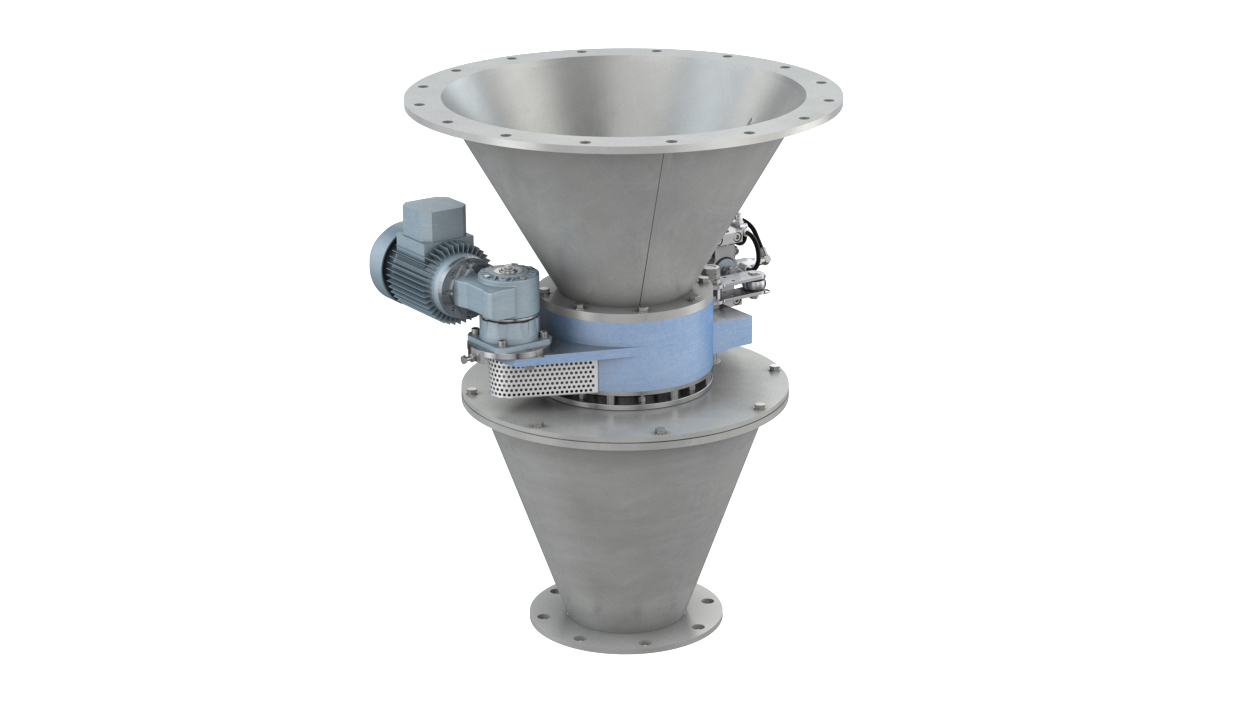Reliable discharge and precise dosing becomes child’s play with the KAD type KOKEISL mechanical discharge and dosing module. A wide range of bulk materials in any quantities can be decanted from silos and containers into other containers with extremely high throughput accuracy. KOKEISL technology is ideal for use in the food and plastics industry, the chemicals industry, and in the agricultural sector.
Highly flexible application
Reliable discharge and precise dosing becomes child’s play with the KAD type KOKEISL mechanical discharge and dosing module.A wide range of bulk materials in any quantities can be decanted from silos and containers into other containers with extremely high throughput accuracy. KOKEISL technology is ideal for use in the food and plastics industry, the chemicals industry, and in the agricultural sector.
Since KOKEISL technology became part of the Zeppelin product portfolio in 2012, it has been used in more than 300 new applications. It has been used in industries from food through plastics to the highly demanding pharmaceutical industry.
KOKEISL technology has shown its strength most clearly when used in straightforward applications to discharge bulk material from silos, containers, or other vessels; thanks to the system’s exceptional flexibility, any quantity of almost any bulk material can be discharged from containers with great accuracy and efficiency. Quantities ranging from a few grams to scores of metric tons can be discharged with outstanding accuracy according to the scale capacity.
The great advantage of the technology is the flexibility with which it can be linked to the process, meaning it can also be applied to decentralized processes such as dosing to a single machine, integration into highly automated bagging machines, complex multi-component weighing systems, and complete container systems.As such, KOKEISL technology offers positive benefits for feeding materials from silos and containers into pneumatic conveying systems, bagging machines, and dosing systems.
Featuring electro-polished surfaces and FDA-compliant seals, KOKEISL is a perfect fit for the pharmaceutical industry too.What’s more, KOKEISL is made up of few parts and is therefore very easy to clean;in principle, the wash-in-place (WIP) process can even be applied. The dosing slide can be completely disassembled in just a few quick steps. The components can be cleaned individually to the required level and then dried. The cleaning process can be optimized and defined to suit custom requirements.
Most notably, KOKEISL has emerged as a genuine alternative for handling poorly flowing bulk material, or when other dosing and discharge systems fail. The specially designed KOKEISL fluidizator rotates next to the inner wall of the cone and prevents bridging, while the bulk material loosens and is discharged extremely gently under its own gravity.A valve below the fluidizator acts as a seal and discharge regulator (dosing); the discharge output can be continuously adjusted according to the dosing process.
It offers a whole host of advantages compared with a dosing screw: The component does not require any additional end cap to prevent product spillage at the end of the dosing process, and there is usually no need for a vibratory bottom. The space it requires is greatly reduced, even with the same output.Overall, there are huge potential savings to be made when assembly and control system costs are removed from the equation.
The KAD type KOKEISL discharge and dosing module comes in three sizes, with a maximum discharge opening of 90 mm, 150 mm, and 200 mm. The appropriate size is determined in consultation with the customer, based on the intended use.
Examples of applications include highly flexible and precise mixing of raw materials for the food, plastic, rubber industries, and metal powder dosing – direct from the containers in which they are delivered, or through continuously adjustable removal from silos and containers. KOKEISL technology is also in use in a huge variety of industries, such as the pharmaceutical and food industry, but also in the plastics industry, chemical and agricultural industry for example for spices, powdered vitamins, lactose, sorbitol, starch, talcum, sulfur, calcium carbonate, paint powder and chocolate drops.

